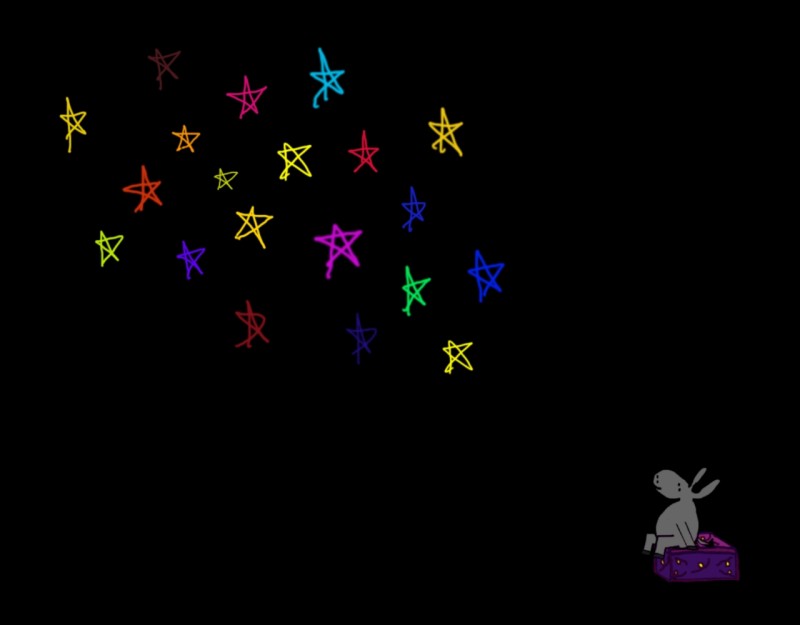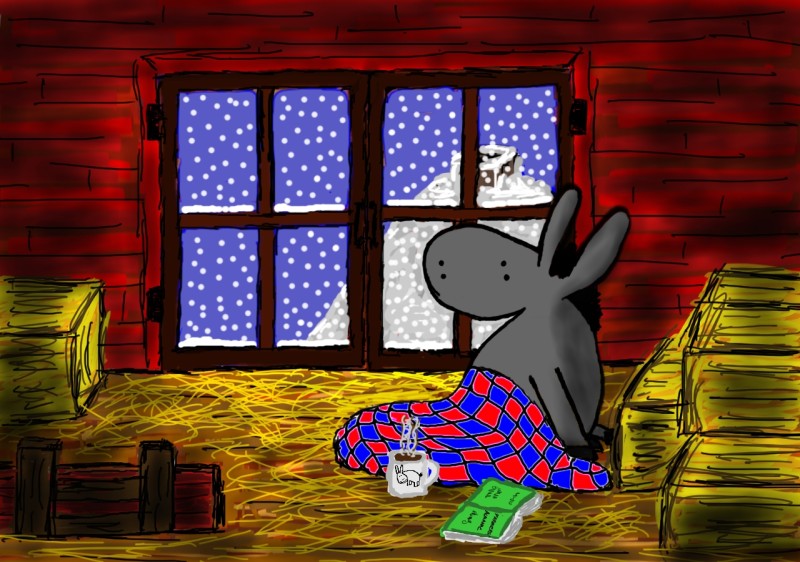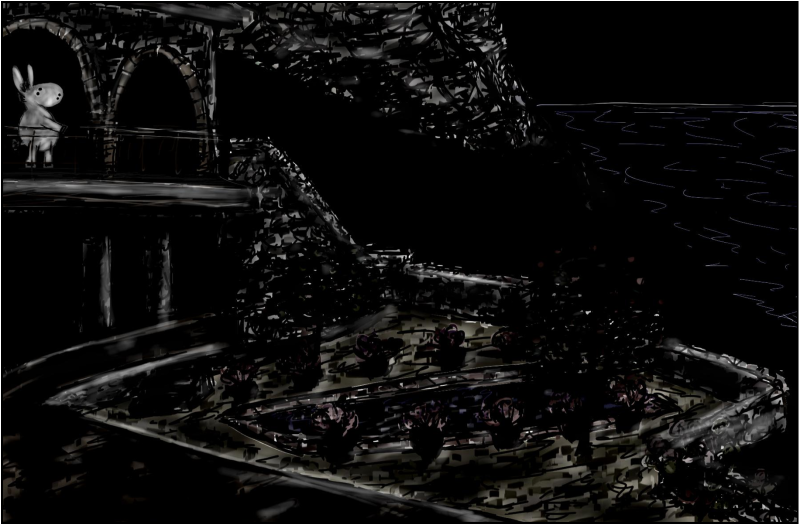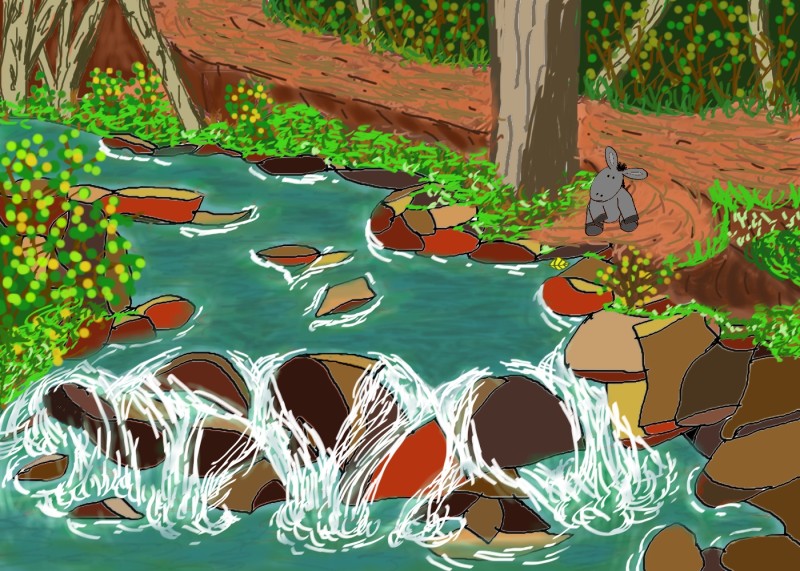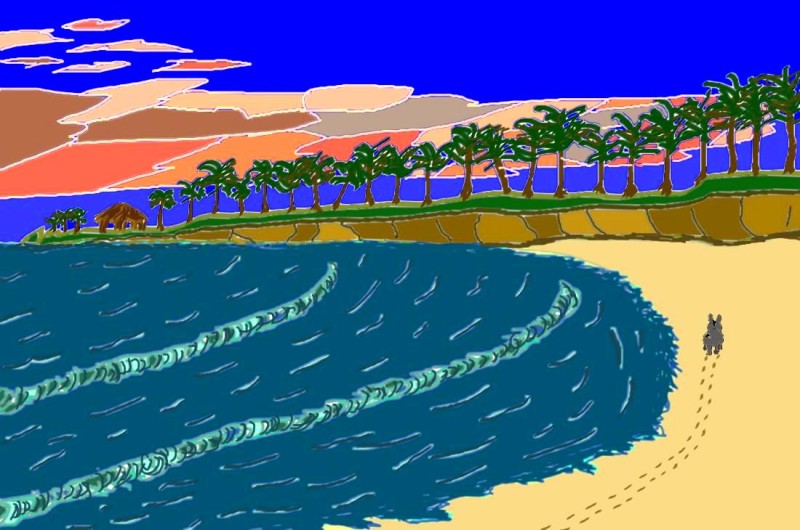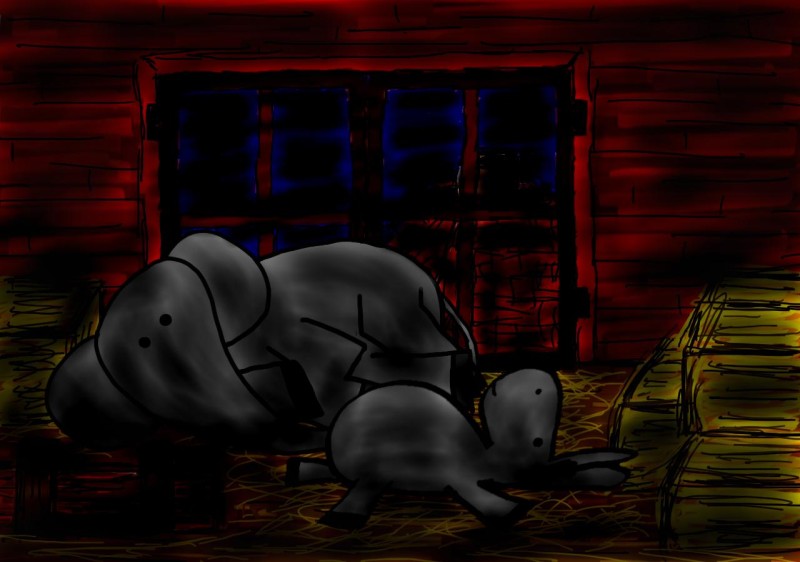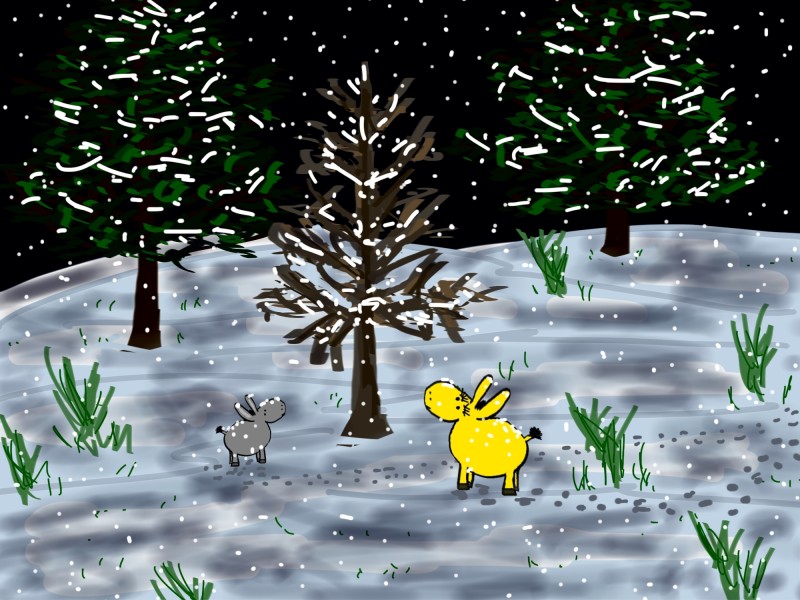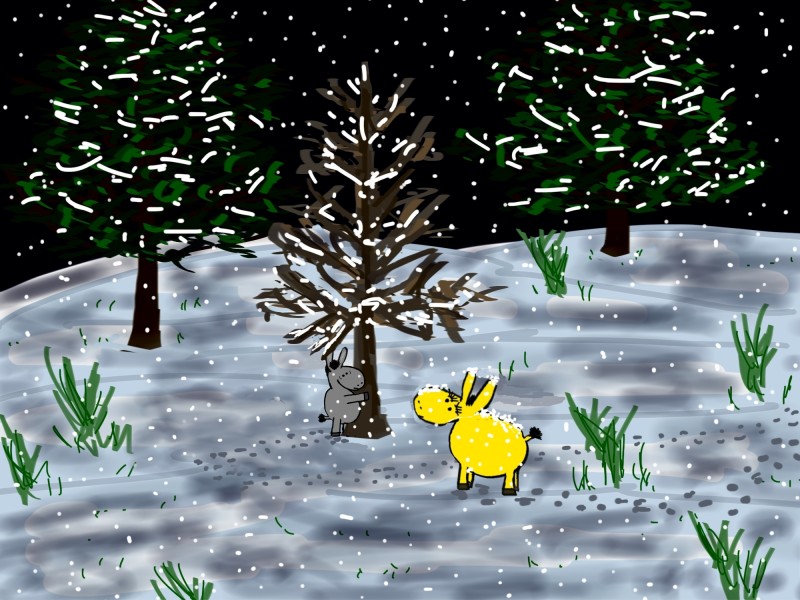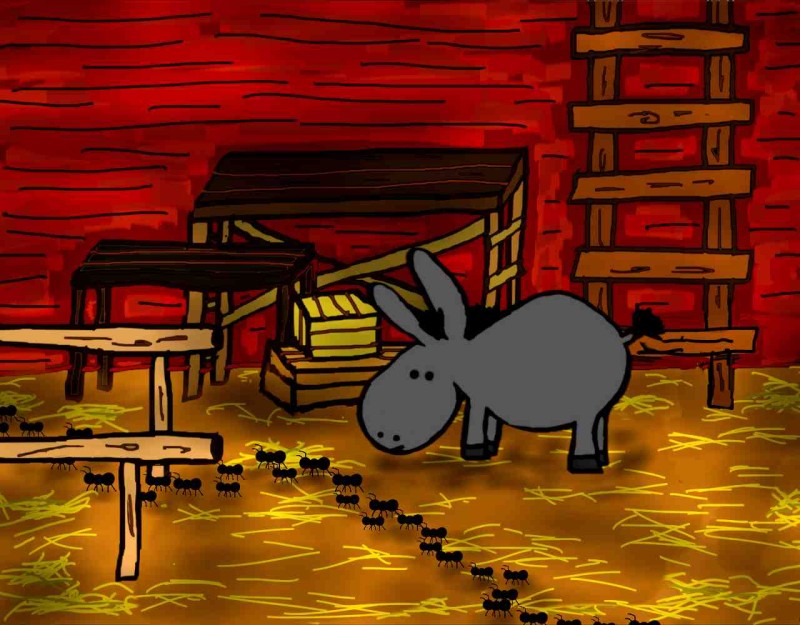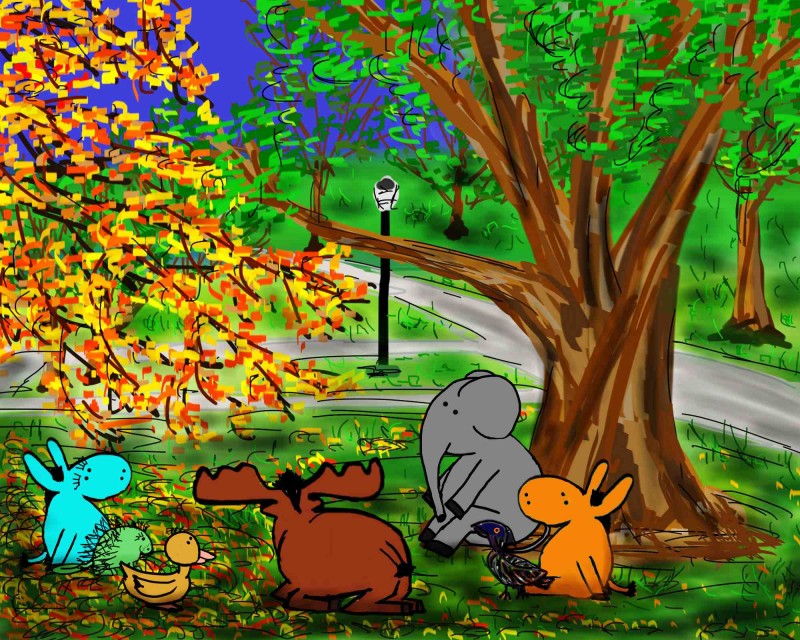The rest… is silence.
Tag: dying
“Blurtso looks at the snow” (XVI)
“Blurtseau Lundif – Corsaire Extraordinaire” (XII)
“Another day,” thought Blurtseau, “and another night. The king is dead, and those who killed the king are dead, and Napoleon consolidates his power while those who would kill him wait in the wings. And the once-full moon that illuminated my vainglorious victory now wanes with a warbling light. Tomorrow the fighting will begin anew, the British, French, Spanish, Dutch, German, Italian, Sardinian, Greek generals… and all the world spins with the bones of the living and the bones of the dead, so many dead, those who pursued a borrowed or inherited dream, white bones in the soil, white bones in the surf of the sea, bones as white as the flickering tail of the waning moon, sparking and submerging among the breakers, flickering water reflection of fleeting sun echoed upon half-eaten moon, half-eaten moon half-eclipsed by the globe it now reflects down upon… half-eaten glow that grows dimmer each day… until the moon, the day, the night, and all our blood-urgent exploits fall dark upon the darkness of the sea, and vanish in the low laving sound of the waves eating the rocks with their dance of disintegration.
“And when the moon goes black, the stars will mark my path to Montecristo where Echo, alone on her island, watches the same silver flicker on a different surface of the same sea. And the light that flickered in her heart? Has it fallen prey to the same dance of deterioration? Will I find the moon already extinguished in the sea of her breast? Eclipsed by the vainglorious sphere that was my haste to depart? The misguided course of this star-crossed corsaire pursuing a sinking star? Yesterday’s hero is the dark side of the earth facing the dark side of the moon, is darkness double, two-faced night’s faceless faces, an echo of existence which touches no ear, a shout across an infinite expanse, an unreciprocated smile, a source without destination, a word from the heart that never arrives.”
“My heart is an echo of the disintegration
of the heart of the universe
that penetrates and disintegrates my own heart.”
“Ditto sits by the stream” (I)
“Blurtso goes to Hollywood” (XI)
Like my brothers, I have found time
to escape time and its burden.
I have found pleasure in distraction,
and satisfaction in its pleasure.
The fugitive light leaves a temporary trace.
One sits, another dances,
still another builds walls of silver
which another with silver shall destroy.
I walk beside the waters,
an insignificant syllable dissolving in the sand.
“Blurtso hears a whisper” (XII)
Harlan? said Blurtso. Yes? said Harlan. Do you think we’ll ever see our snakes again? I don’t know, said Harlan. I wonder, said Blurtso, what else we’ll never see again? It’s impossible to tell, said Harlan, what will be gone in the morning. Harlan? said Blurtso. Yes? said Harlan. I’ll do what I can to be here in the morning.
“Ditto finds a dead tree” (I)
“Blurtso looks at the snow” (XXII)
“Blurtso sees an ant” (V)
The more you look at ants, the more they look like water… flowing here, flowing there, encountering an obstruction, flowing around it, flowing over it, or carrying it with them as they flow along. And just like too much of anything, if there are too many, they carry away everything in sight, until there is nothing left for others, and nothing left for themselves.
“Weohryant University” (XIX) – Where 101
Today’s question, said Harlan, is: “Where did it go?”
Where did what go? said Chelsea.
It was here just a minute ago, said Morton.
I didn’t take it, said Emma Lou.
Neither did I, said Frank.
Do you mean “ubi sunt”? said Glouster.
Ubi sunt? said Morton.
“Ubi sunt,” said Glouster, is Latin for “Where are they?” It comes from a Latin poem that begins, “Ubi sunt qui ante nos in mundo fuere?” which translates: “Where are they who, before us, existed in the world?” It was a common theme in medieval poetry, and was most famously expressed by the French poet, François Villon who asked, “Où sont les neiges d’antan?” or “Where are the snows of yesteryear?”
The snows of yesteryear? said Morton.
I don’t like snow, said Chelsea.
Neither do I, said Frank.
I don’t mind it, said Emma Lou, so long as I’m not far from my den.
Why would anyone worry about last year’s snow? said Morton.
It’s a metaphor, said Glouster, for all the things you’ve lost in your life.
Lost? said Chelsea.
Yes, said Glouster, the things you had in the past that you no longer have.
The things I’ve eaten? said Morton.
Yes, said Glouster, and the friends you’ve lost, and your lost youth.
My lost youth? said Chelsea.
Yes, said Glouster.
I’m not going to lose my youth, said Chelsea.
Of course you are, said Glouster.
Really? said Chelsea.
Yes, said Glouster.
In that case, said Chelsea, I don’t like “ubi sunt.”
Crows live forever, said Frank.
They do? said Morton.
Sure, said Frank, crows, or “ravens”, and nightingales, and even some other birds.
Are you sure? said Morton.
Yes, said Frank, just ask Edgar Allen Poe and John Keats.
Who are they? said Chelsea.
They are poets, said Frank, who wrote about birds who live forever, birds who travel from heaven to earth to hell and then back again.
Have you been to heaven and hell? said Chelsea.
No, said Frank, not yet.
I don’t want to go to hell, said Morton.
Heaven and hell, said Glouster, are metaphors for, “the realm of the dead.”
I don’t want to go there either, said Morton.
Maybe, said Chelsea, that’s where the “ubi sunts” are.
I know a song, said Frank, about “ubi sunt.”
What’s it called? said Chelsea.
It’s called “The Ashgrove,” said Frank, and it has a blackbird in it.
How does it go? said Chelsea.
I don’t remember all the words, said Frank, but it’s about a woman who loses her lover and looks for him in an ashgrove.
Does she find him? said Chelsea.
No, said Frank, he’s buried beneath the green turf.
Is that a metaphor for “the realm of the dead”? said Morton.
Yes, said Frank.
Why doesn’t the blackbird, said Chelsea, fly to the realm of the dead, talk to the dead lover, then return and talk to the woman so she can have a sense of closure?
That’s a good question, said Frank.
What’s closure? said Morton.
Closure, said Chelsea, is talking with your ex-lover until you have nothing more to say.
Why would you want to do that? said Morton.
Because, said Chelsea, if you say everything you have to say, you can stop thinking about him when he’s gone.
So he doesn’t become an “ubi sunt”? said Morton.
Yes, said Chelsea.
I would like to be an “ubi sunt”, said Emma Lou.
So would I, said Glouster.
Why? said Chelsea.
Because, said Glouster, I don’t want to be forgotten.
Being forgotten, said Emma Lou, would be like a second death.
Maybe it’s a good thing, said Morton, for people to go around asking “ubi sunt?”
Why? said Chelsea.
Because, said Morton, it keeps the dead from dying.
